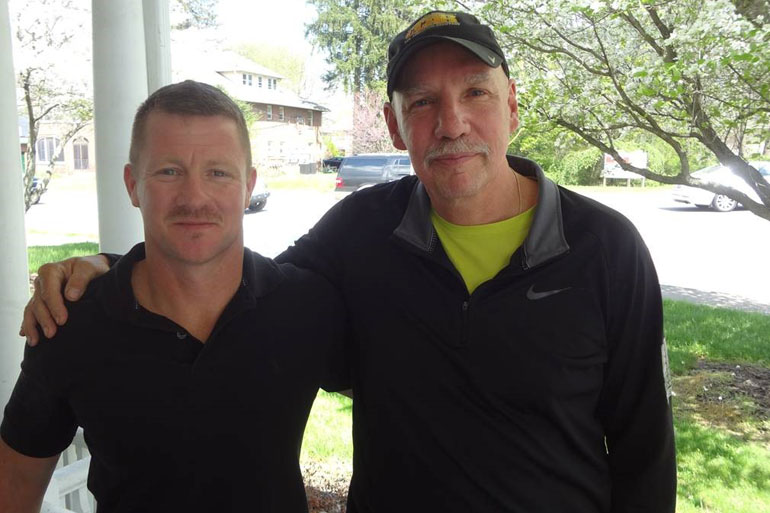Both of Richie Tannerhill’s parents had mental health and substance abuse disorders. His dad was sentenced to an extended prison term, and Tannerhill said he was “passed around from friend to friend, family member to family member.”
By the age of 4, he’d lived in five states.
His first arrest came when he was in third grade and got caught breaking into a school. He was dealing drugs at 12, and by 14 had sampled pills, mushrooms, cocaine and LSD. At 15, he landed in the behavioral health unit of a hospital in Kailua, Hawaii, and a year later, a Nebraska prison, charged with breaking into two restaurants.
He entered adulthood needing a drink each morning just to ease the shakes.
At 31, he was back in jail, facing a 15-year stretch for a string of felony charges ranging from assault with a deadly weapon with intent to kill (subsequently dismissed as self-defense) to possession of precursor chemicals with the intent to manufacture and distribute.
He had a 4-year-old and an infant at home and two more kids he wasn’t allowed to visit. He was, he said, “everything I didn’t want to be.”
“I was physically, mentally, spiritually, financially — I was broken, man.” And ready to reassemble. Solitary confinement had sobered him up, and he was convinced he was ready to stay clean.
He entered a courtroom and said, “‘Judge, I’ve had a spiritual awakening. I’m good.’” The judge said, “‘Richie, I’m glad to hear that. Two more years.’”
He went back to prison.
“And guess what? It turned out to be exactly what I needed,” Tannerhill said. He spent that first year in a long-term treatment program, “clean time,” where he was introduced to the tenets of recovery.
In November 2007, he re-entered the world, homeless and lacking a driver’s license. But nurturing that spark of hope.







